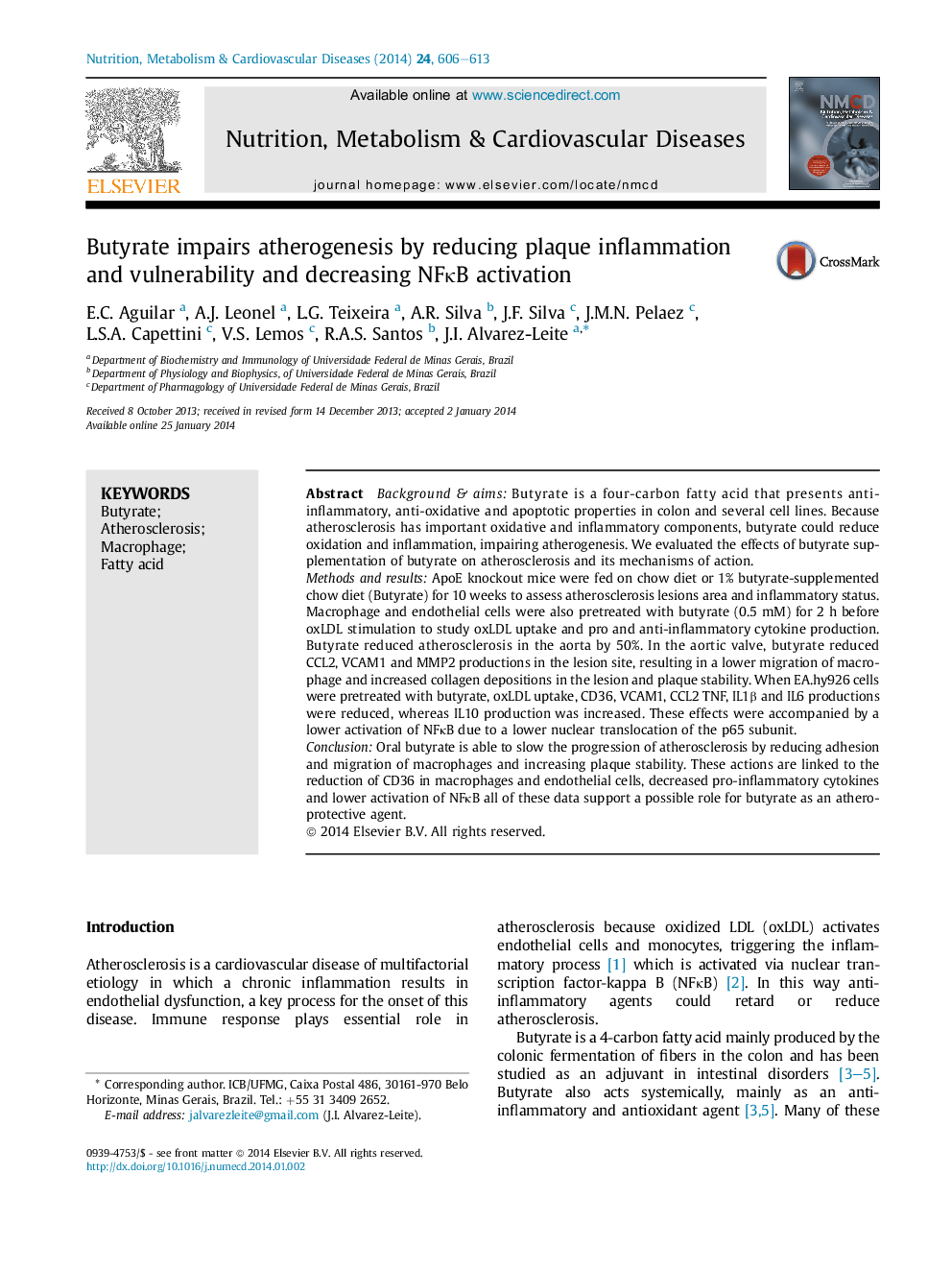| کد مقاله | کد نشریه | سال انتشار | مقاله انگلیسی | نسخه تمام متن |
|---|---|---|---|---|
| 3002044 | 1180696 | 2014 | 8 صفحه PDF | دانلود رایگان |

Background & aimsButyrate is a four-carbon fatty acid that presents anti-inflammatory, anti-oxidative and apoptotic properties in colon and several cell lines. Because atherosclerosis has important oxidative and inflammatory components, butyrate could reduce oxidation and inflammation, impairing atherogenesis. We evaluated the effects of butyrate supplementation of butyrate on atherosclerosis and its mechanisms of action.Methods and resultsApoE knockout mice were fed on chow diet or 1% butyrate-supplemented chow diet (Butyrate) for 10 weeks to assess atherosclerosis lesions area and inflammatory status. Macrophage and endothelial cells were also pretreated with butyrate (0.5 mM) for 2 h before oxLDL stimulation to study oxLDL uptake and pro and anti-inflammatory cytokine production. Butyrate reduced atherosclerosis in the aorta by 50%. In the aortic valve, butyrate reduced CCL2, VCAM1 and MMP2 productions in the lesion site, resulting in a lower migration of macrophage and increased collagen depositions in the lesion and plaque stability. When EA.hy926 cells were pretreated with butyrate, oxLDL uptake, CD36, VCAM1, CCL2 TNF, IL1β and IL6 productions were reduced, whereas IL10 production was increased. These effects were accompanied by a lower activation of NFκB due to a lower nuclear translocation of the p65 subunit.ConclusionOral butyrate is able to slow the progression of atherosclerosis by reducing adhesion and migration of macrophages and increasing plaque stability. These actions are linked to the reduction of CD36 in macrophages and endothelial cells, decreased pro-inflammatory cytokines and lower activation of NFκB all of these data support a possible role for butyrate as an atheroprotective agent.
Journal: Nutrition, Metabolism and Cardiovascular Diseases - Volume 24, Issue 6, June 2014, Pages 606–613